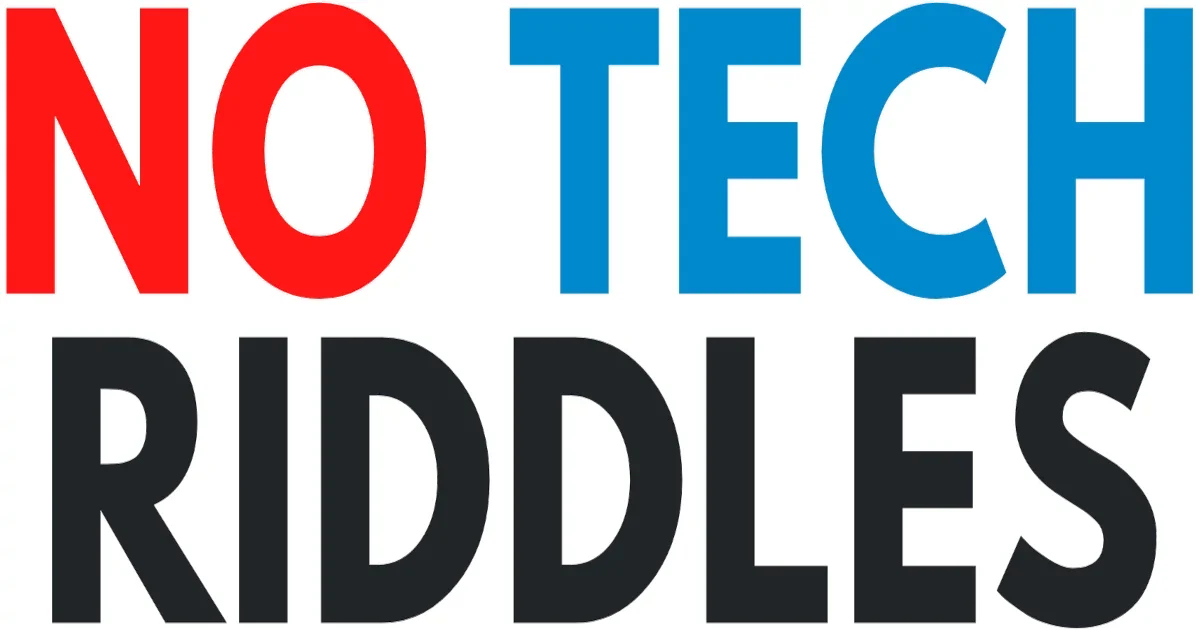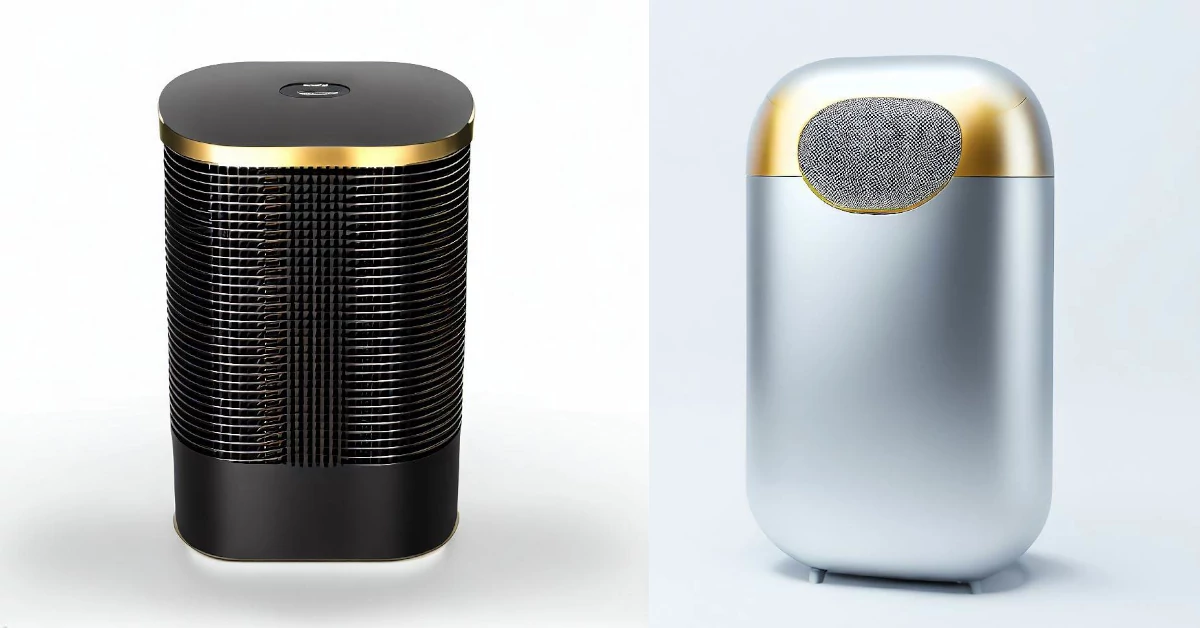Are you sick of breathing in dirty air full of dangerous bacteria and viruses? Do you want to make sure that the air you and your family breathe is clean and safe? If so, you should know how powerful UVC light is.
When it comes to cleaning the air, this new technology is changing the game, and every homeowner should know about it.
In this article, I’ll talk about the benefits of UVC air purifiers and why everyone who wants to stay healthy and breathe easily should have one.
So, take a seat, put your feet up, and get ready to learn about the wonderful world of UVC light!
Understanding UVC Air Purifiers

What is a UV Air Purifier?
A UV air purifier is a machine that uses ultraviolet light to grab air and send it through a filter.
After that, the air goes through a small chamber inside where it is exposed to UV-C light.
Mold, bacteria, and viruses that are floating in the air are killed by the UV-C spectrum of ultraviolet light.
The UV air purifier kills microorganisms and pathogens so that the air inside is clean.
How Does a UV Air Purifier Work?
A UV air purifier uses short-wave ultraviolet light (UV-C light) to kill mold, bacteria, and viruses that are floating through the air.
The short-wavelength UV-C light at 254nm breaks up the DNA of microorganisms and pathogens that pass through the air purifier’s inner chamber.
The microbes will die when the nucleic acids are destroyed, and the air will be pumped back into the room.
The UV air purifier works by pulling air into the unit and passing it through a filter, like a HEPA filter, before exposing it to UV-C light.
Microorganisms and pathogens are killed by the UV air cleaner.
Effectiveness of UV Air Purifiers
When used with HEPA filters, UV air purifiers are usually good at getting rid of bacteria in the air.
But they don’t do a good job of getting volatile organic compounds (VOCs) out of the air.
UV air purifiers are made to get rid of pollutants in the air inside.
They can be bought as stand-alone devices or as systems that can be added to existing HVAC units in homes or businesses.
Safety Concerns
UV air purifiers are safe to use and can help make the air inside a home or building better overall.
But direct UVC exposure to the skin or eyes of a person can hurt them, and putting UVC in an air duct is less likely to cause skin or eye exposure.
Some UVC lamps make ozone, which can irritate the lungs, and UVC can break down materials like plastic, polymers, and dyed fabrics.
The Environmental Protection Agency (EPA) says that people shouldn’t buy air purifiers that release ozone.
This includes UV air purifiers, electrostatic precipitators, ionizers, and plasma air purifiers.
Some UVC lamps make ozone, which is bad for your health if you breathe it in.
HEPA Filters Explained
Understanding HEPA Filters in Air Purifiers
HEPA filters are a type of air filter that can get rid of at least 99.97% of dust, pollen, mold, bacteria, and any other airborne particles larger than 0.3 microns.
HEPA is an acronym for “high-efficiency particulate air” filter.
HEPA filters are made of either plastic or fiberglass.
They are made up of intertwined fibers with a diameter of less than 1 micron that are twisted and turned in different directions to make a “fibrous maze.”
How HEPA Filters Work
Particles get caught in the filter’s fibers as air moves through it, which is how HEPA filters work.
There are two ways for them to clean the air.
The first is one or more outer filters that work like sieves to stop dirt, dust, and hair that is bigger than the holes.
The second part is a “contraption” made of what looks like folded paper.
The outer gauze “pre-filter” can make the inner HEPA filter last much longer.
Benefits of HEPA Filters
Most air cleaners, vacuum cleaners, and air handling units have HEPA filters.
They are good for people with asthma and allergies because they can catch small particles like pollen and dust mite feces, which can cause asthma and allergy symptoms.
Ultrafine pollutants, such as viruses and bacteria, can also be caught by HEPA filters.
They are very good at getting rid of dust, pollen, mold, certain bacteria and viruses, dust mites, PM2.5, pet dander, and a number of other solid allergens found in indoor air.
Hospitals often use HEPA filters, which are sometimes called “medical-grade” HEPA filters.
HEPA Filter Regulations
There are strict rules about how to make and use HEPA filters.
In Europe, HEPA filters have to get rid of 99.95% of particles, but in the US, they only have to get rid of 99.97% of particles.
Because of the way they work, HEPA filters are very good at catching nanoparticles.
Maintenance and Replacement
All air cleaners need to have their filters cleaned and replaced every so often for them to work properly.
Follow the maintenance and replacement instructions that the maker gives you.
H13 HEPA Filters
H13 HEPA filters are an advanced type of HEPA filter that can get rid of even smaller particles that are only 0.1 microns in size.
They are often used in air purifiers because they are very good at getting rid of ultrafine particles.
HEPA filters are an important part of air purifiers and other systems that clean the air.
They are very good at getting rid of allergens, pollutants, and pathogens that are floating in the air.
To keep HEPA filters working well, they need to be cleaned and replaced on a regular basis.
H13 HEPA filters are a special kind of HEPA filter that can catch even smaller particles.
This makes them perfect for air purifiers.
Benefits of UVC Air Purifiers with HEPA Filters
The Benefits of UV Air Purifiers with HEPA Filters
UV air purifiers with HEPA filters are becoming more and more popular because they can improve the quality of the air inside.
These air purifiers use UV light technology to take in air, pass it through a filter, and then put it in a small chamber where it is exposed to UV-C light.
This process removes bacteria and viruses from the air effectively, making it a great choice for people who want to improve the quality of the air inside their homes.
But it’s important to remember that UV air purifiers can’t get rid of VOCs or other gases in the air.
This is why you need HEPA filters.
HEPA filters are good at removing dust, smoke, and pollen from the air.
They can even cut the amount of particulate matter in the air by 50% or more.
True HEPA/UV-C air purifiers use HEPA air filters that can be changed and an ultraviolet germicidal light to catch 99.97% of airborne allergens and 99% of airborne germs and bacteria that cause bad smells.
These air purifiers have replaceable HEPA-rated filters that get rid of 99.97% of the airborne particles in your home.
This makes them a great choice for people who want to improve the quality of the air inside their homes.
Removing Pollutants with UVC Air Purifiers with HEPA Filters
UVC air purifiers with HEPA filters are good at getting rid of many types of air pollution.
Dust, pollen, pet dander, and other allergens as small as 0.3 microns can be caught by HEPA filters.
UVC light can kill bacteria, viruses, and mold spores, so it’s a great way to improve the quality of the air inside.
UVC light can also break down chemicals like volatile organic compounds (VOCs) and other substances.
VOCs are gases that come from cleaning products, paints, and building materials, among other things.
They can irritate the eyes, nose, and throat, give you headaches, and make you sick in other ways.
UVC light can turn VOCs into harmless byproducts, which makes it a great choice for people who want to improve the quality of the air inside their homes.
Limitations of UVC Air Purifiers with HEPA Filters
UVC air purifiers with HEPA filters can get rid of a lot of pollutants in the air, but they might not be able to get rid of all pollutants, like carbon monoxide or cigarette smoke.
It’s important to choose an air purifier that’s the right size for the room where it will be used and to think about buying one with HEPA and carbon filters to get rid of VOCs, gases, and odors in the air.
Germicidal UVC: The Key to Effective Air Purification
When it comes to air purification, one of the most effective technologies available is germicidal UVC.
This type of ultraviolet light is capable of destroying bacteria, viruses, and other microorganisms that can cause illness and respiratory problems.
UVC air purifiers use this technology to sanitize the air in your home or office, providing a cleaner and healthier environment for you and your family.
Germicidal UVC works by disrupting the DNA of microorganisms, rendering them unable to reproduce and causing them to die off.
This makes it an ideal solution for eliminating airborne pathogens, including those that cause colds, flu, and other illnesses.
By incorporating UVC technology into air purifiers, you can enjoy cleaner, fresher air and reduce your risk of respiratory problems and other health issues.
For more information:
Germicidal UVC: Air Purifier’s Ultimate Weapon

Maintenance and Effectiveness of UVC Air Purifiers with HEPA Filters
Lifespan of a HEPA Filter in a UVC Air Purifier
The life of a HEPA filter in a UVC air purifier depends on how often it is used, the quality of the air, and the environment.
Most manufacturers say that the HEPA filter should be changed every six months.
But some filters can last up to five years, while others may need to be replaced every one to three months.
Users can use an air monitor to check the air quality every so often to figure out when to replace the HEPA filter.
The effectiveness of a HEPA filter goes down over time, so it’s important to replace it before the effectiveness goes down by a lot.
Smart air purifiers like the Sqair should be replaced every 1400 hours, or six months, if they run for eight hours a day on high.
Depending on the air quality and the environment, carbon pre-filters should be changed every three months.
If you can wash the HEPA filter, you should do so every one to two months.
In the end, how often you need to replace your HEPA filter depends on how you use it and how dirty the air is.
Effectiveness of HEPA Filters and UV Air Purifiers
HEPA filters are good at getting rid of allergens like dust, pollen, and pet dander that are common in homes.
On the other hand, UV air purifiers are good at getting rid of bacteria in the air.
UV air purifiers may be good at getting rid of bacteria, but they can’t get rid of VOCs or other gases well.
The EPA says that you should buy HEPA air purifiers instead of UV air purifiers.
Alleviating Allergy Symptoms with Air Purifiers
By getting rid of indoor air pollution and allergens, air purifiers with HEPA filters can help allergy sufferers feel better.
Some air purifiers have been certified by the Asthma and Allergy Foundation (AAFA) as asthma and allergy friendly.
For example, the LEVOIT Air Purifier uses three stages of filtration and a HEPA carbon filter to get rid of 97% of common allergens in the home.
The Dyson Pure Cool TP04 Air Purifier has a HEPA filter and an activated carbon filter that catch different kinds of pollutants.
Even though air purifiers can catch some allergen particles, there isn’t much medical evidence to show that they help allergies or respiratory symptoms in a big way.
But patients with allergic respiratory disease are often told to clean the air as part of making their environment better.
Choosing an Air Purifier for Allergies
When choosing an air purifier for allergies, people should think about the size of the room they want to use it in, the allergens they want to get rid of, and the features they want in an air purifier.
It is also important to think about how long the HEPA filter will last and how often it will need to be replaced.
In the end, an air purifier may or may not help with allergy symptoms depending on the person’s situation and how bad the allergy is.
UVC air purifiers can be a good way to improve the quality of the air inside, but each person needs to choose the right type of air purifier for their needs.
HEPA filters are good at getting rid of common allergens in the home, while UV air purifiers are good at getting rid of bacteria.
People with allergies should think about the size of the room, the allergens they want to get rid of, and the features they want in an air purifier before they buy one.
Even though air purifiers can catch some allergen particles, there isn’t much medical evidence to show that they help allergies or respiratory symptoms in a big way.
But patients with allergic respiratory disease are often told to clean the air as part of making their environment better.
Choosing the Right UVC Air Purifier with HEPA Filter
UVC Air Purifiers versus HEPA Air Filters
UVC air purifiers and HEPA air filters are two different ways to clean the air, and each one has its own pros and cons.
UVC air purifiers use UV-C light technology to take air through a filter and then expose it to UV-C light to kill viruses and bacteria.
HEPA air filters, on the other hand, use a dense filter to catch dust, pollen, and pet dander.
Strengths and Weaknesses
UVC air purifiers can kill viruses and bacteria, but they can’t get rid of gases like volatile organic compounds (VOCs) or other gases.
Also, UVC air purifiers can put out ozone, which is bad for people’s health.
On the other hand, HEPA air filters can get rid of viruses and other small particles from the air.
But they only catch active viruses and don’t destroy them, so they need to be changed often.
Recommendations
HEPA air filters are recommended for hospitals and other healthcare settings to keep the air clean and stop infections.
The EPA also says that HEPA air purifiers are better than UV air purifiers for getting rid of VOCs, gases, and smells in the air.
But when used with HEPA filters, UVC air purifiers can do a good job of getting rid of bacteria in the air.
Choosing a UVC Air Purifier with a HEPA Filter
There are a few things to think about when choosing a UVC air purifier with a HEPA filter.
- Look for an air purifier that uses a high-efficiency particulate air (HEPA) filter, which is the standard recommended by the EPA and the American Lung Association. HEPA filters are capable of filtering out dust, smoke, pollen, and other particulate matter. Some air purifiers also have additional filters, such as activated carbon or charcoal filters, that trap gases, volatile organic compounds (VOCs), and odor compounds.
- Compare Clean Air Delivery Rate (CADR) ratings, which show how quickly the air purifier can filter air. In general, a CADR above 240 receives an Excellent rating, while a CADR between 179 to 120 is considered Good.
- Consider noise levels, which are listed in decibels in product specifications. Depending on where you’re using your air purifier, you may want a quieter device.
- Lastly, if you are specifically looking for a UVC air purifier, make sure to check if the device emits ozone. While UV air purifiers may be effective at filtering bacteria out from the air, there is a risk that these devices can emit ozone. The EPA recommends using HEPA or carbon filter air purifiers to remove VOCs, gases, and odors from the air.
Conclusion

In the world of air purification, the UVC air purifier is a game-changer.
No other technology can match its ability to remove dangerous pathogens and pollutants from the air we breathe.
As the owner of an air purifier, you can rest easy knowing that you and your family are breathing in clean, healthy air.
If you want to buy an air purifier, you should definitely think about the UVC air purifier.
It not only cleans the air better than other methods, but it also does so in a way that is new and different.
But it’s important to keep in mind that an air purifier is only one part of the puzzle when it comes to keeping the air quality in your home good.
Also important to think about are regular cleaning, good ventilation, and limiting the use of dangerous chemicals.
In the end, the UVC air purifier is a strong tool for cleaning up dirty air inside.
By buying one, you’re taking an active step to improve your health and the health of those around you.
So go ahead and jump; your lungs will be glad you did.
Links and references
- “Conceptual Design of a UVC-LED Air Purifier to Reduce Airborne Pathogen Transmission—A Feasibility Study”
- Cleantech UVC Air Purifier with H11 True HEPA Filter for Home, Office, and Pets (product listing on Amazon)
- UVC Plasma Air Purifier Fan (product listing on German Pool)
- Portable UV Sterilization Air Purifier (product listing on Ascendbeauty)
My article on the topic:

